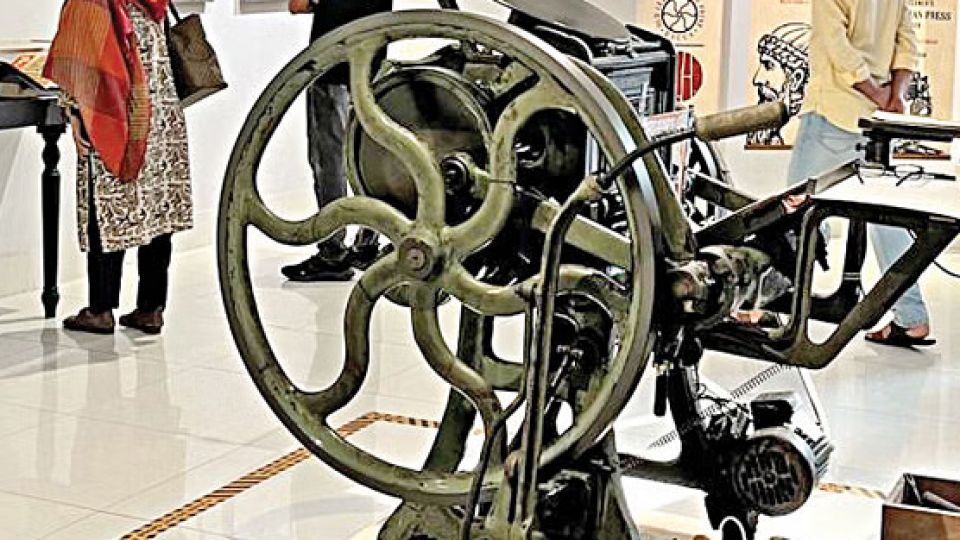June 12, 2024
DHAKA – The sound of printing in a letterpress machine has a certain rhythm to it. The ink, which is evenly spread on the platen or the flat platform of the press; the wheels running while copies of an image are produced by repeated direct impression — all have a nostalgic pull to this near obsolete technology.
Halim Hossain’s “Ekota Letter Press” on the dark, dingy ground floor of Banija Bitan Super Market in Nilkhet, is probably one of the last few letterpress machines in operation.
Hossain has been in the printing business since 1989. He initially worked in a similar press at Lalbagh. When he decided to start his own business, the machine he works with now was bought some 20 years ago from a second-hand dealer with an investment of Tk 70,000.
In the dimly lit small room that houses the old letterpress, there is hardly any space to manoeuvre and Hossain is the only man working. He learned all the nuances of the printing trade when he came to the capital as a teen. Today, he is so skilled that the printer even does all his maintaining and repairing work himself!
“The business of letterpress printing was booming up until there came a point where skilled printers like myself became redundant and were replaced by people — no matter how unskilled — who could run automated photographic and offset press,” Halim says.
His primary clients were banks and NGOs but the pandemic made him lose big contracts. He could not recover fully.
“I do print money receipts, visiting cards, question papers, and warranty cards but orders are few and far in between. At one point I was printing not only books but also cigarette labels, election posters, and more.”
For me letterpress means posters for liberation from the British or the Pakistanis; it means posters of Ekushey February. Right now, Halim needs to be recognised as an artisanal printer because letterpress printing is more of a utilitarian art, trade, or craft.
Such prints do add an old-world charm and people who can afford and lean towards the retro feel can make unique wedding/gaye holud cards; fine handmade, limited-edition books; artists’ books; high-end greeting cards and single-sheet publications.
Giving Halim Hossain a few such work orders can keep his old trade going and keep the old machine running.


